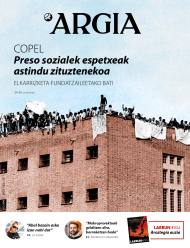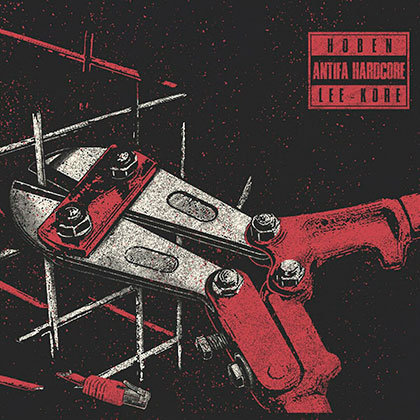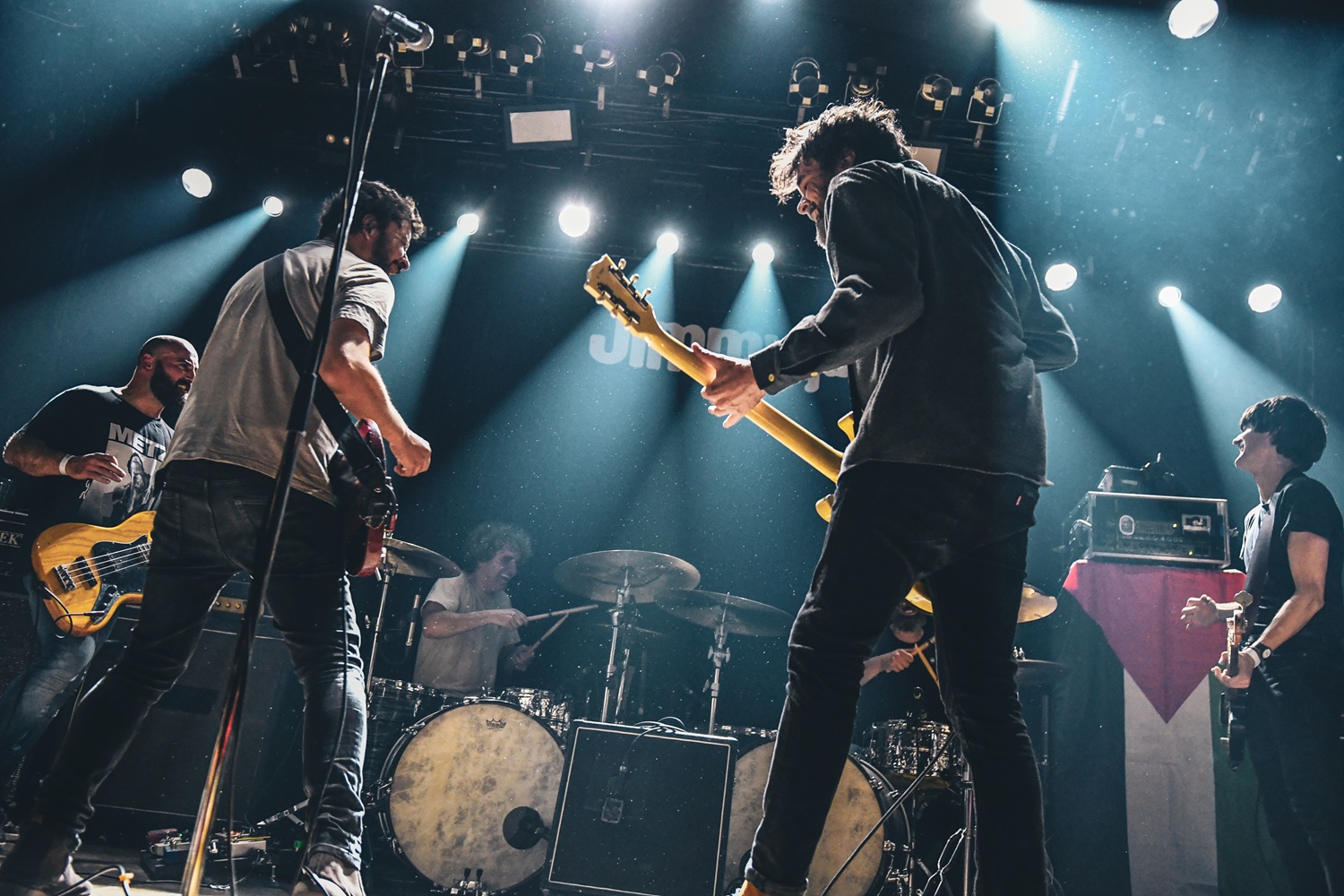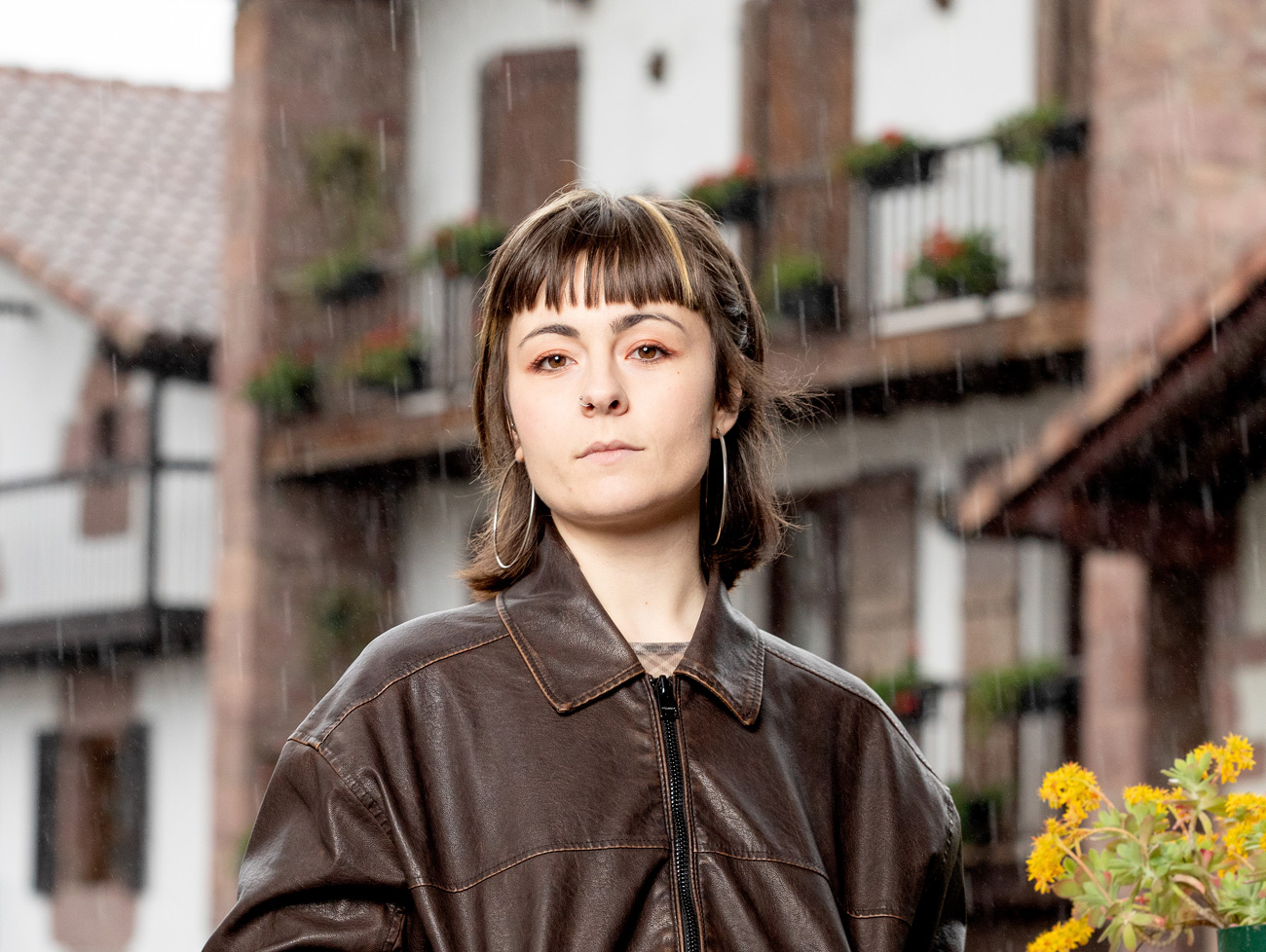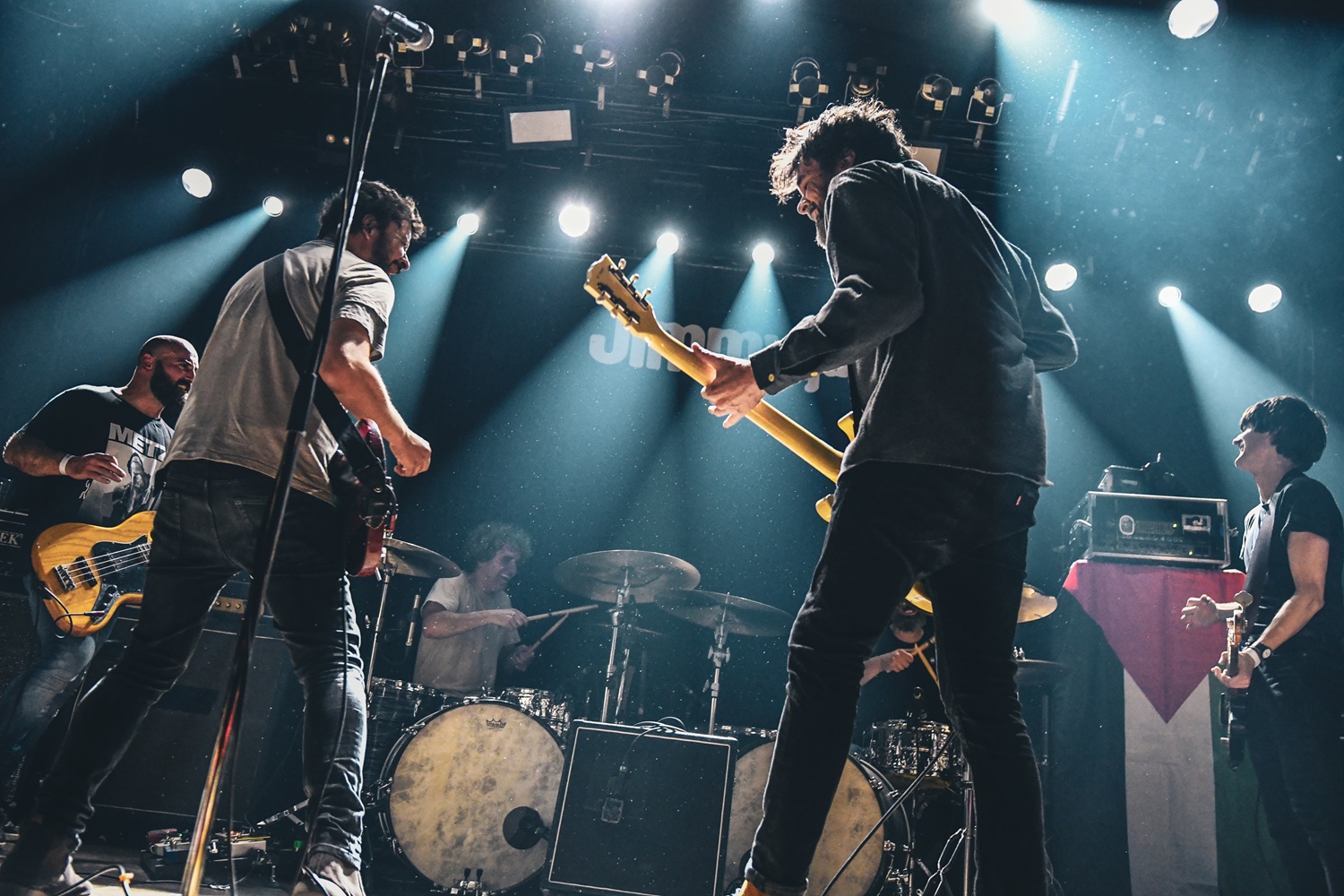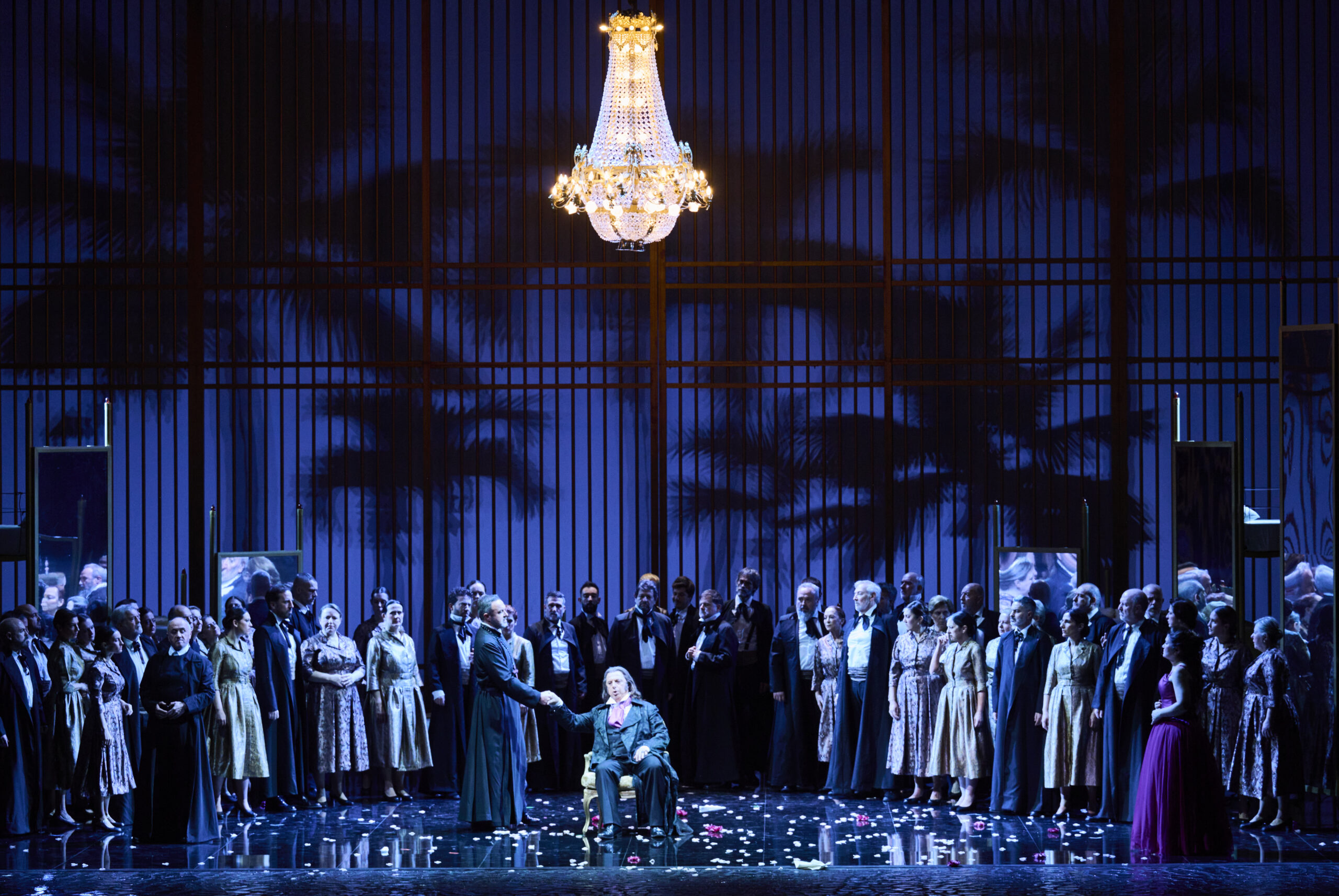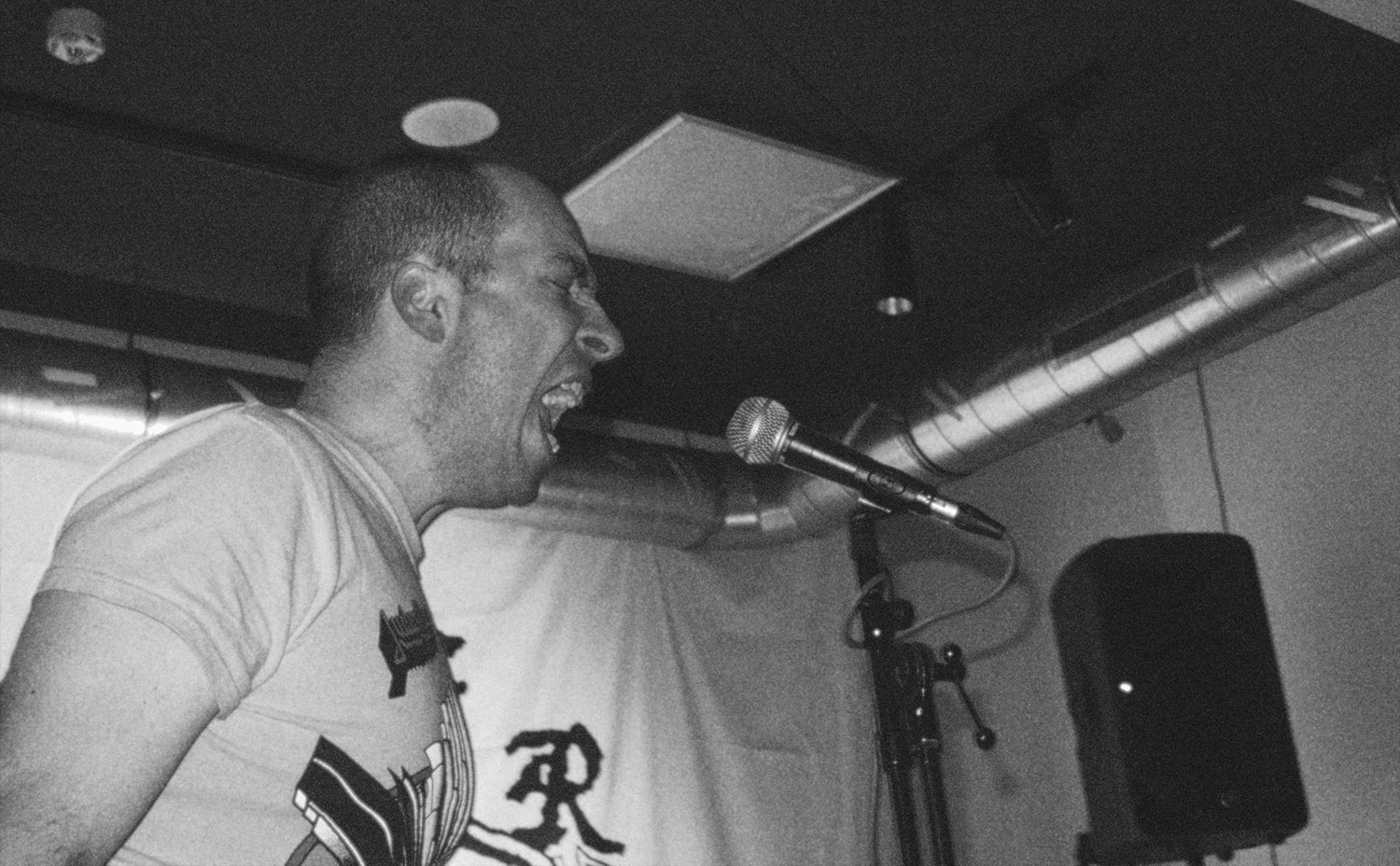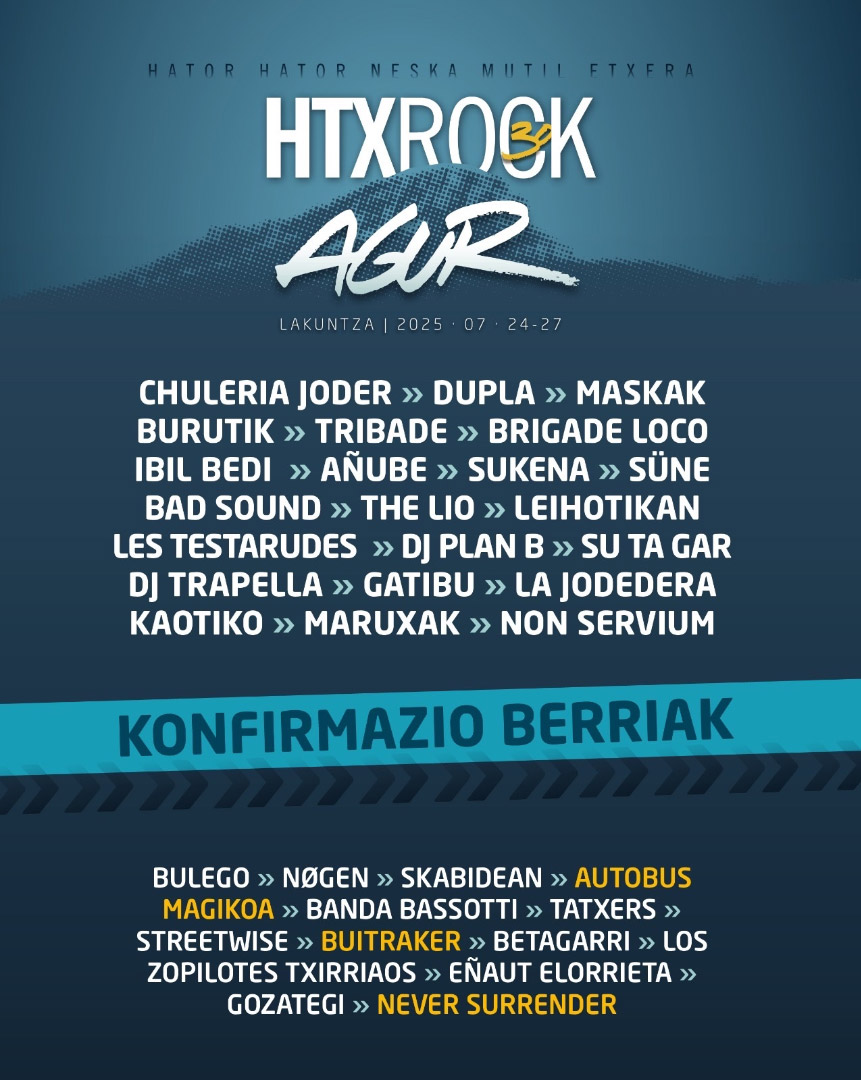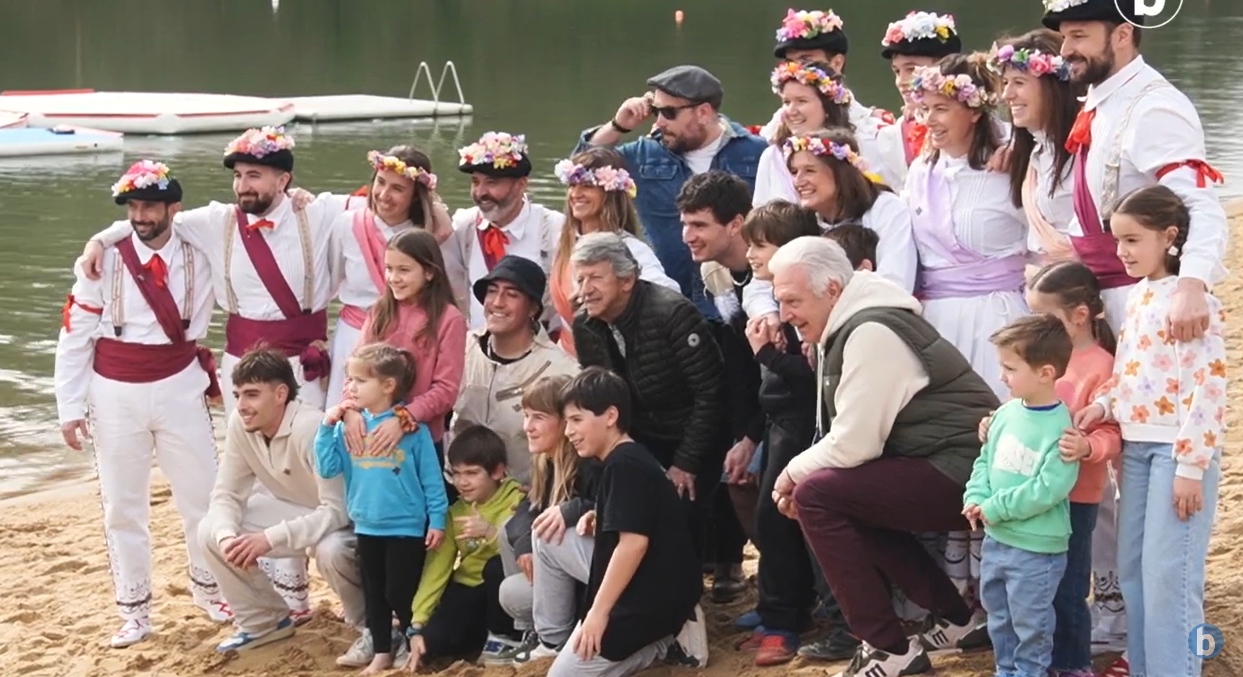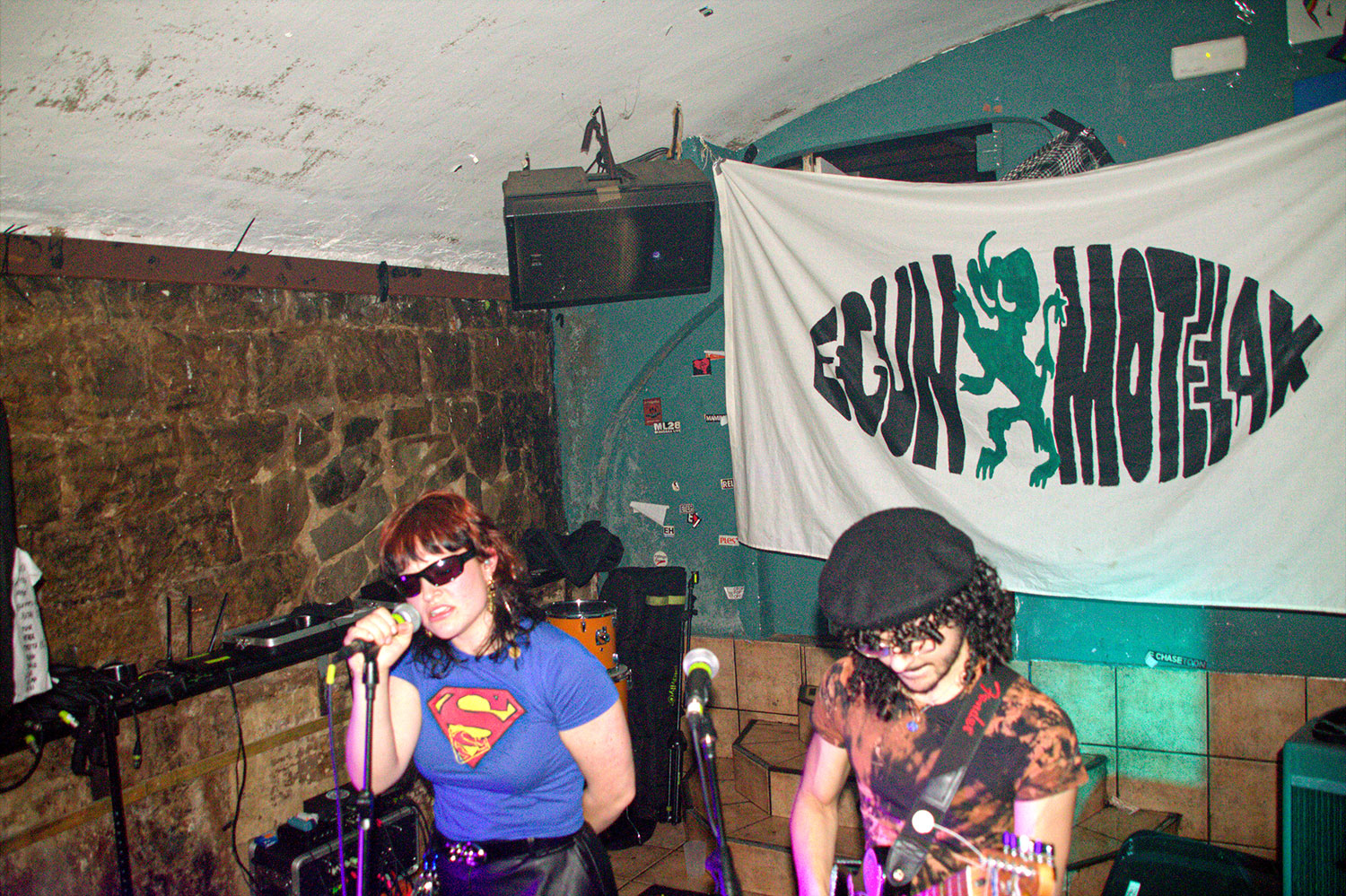"If Cascante is the Basque Country, why are Basque cultures not jotak?"
- Panties of hair, from waist to toe, latex on the arms and torso, and golden orange hair. This is how La Furia presents its third full-length work:It's the Ultra. All this perfectly reflects the rap singer’s bet: to give everything, according to his criteria.
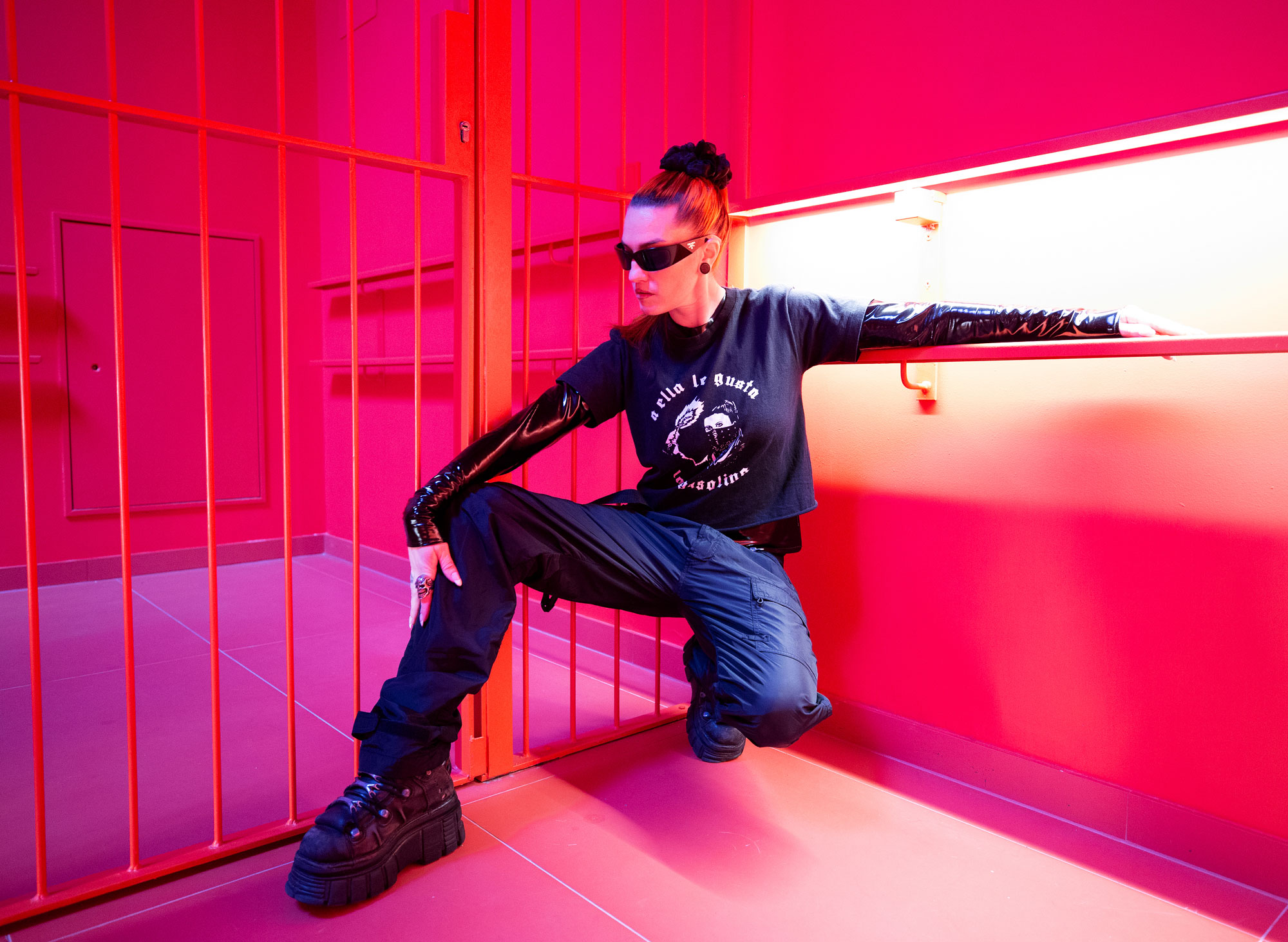
The Fury (Cascante, 1983)
Nerea Lorón Díaz is a rap singer. He just released his third album:It's the Ultra. The three collaborations of the album are worth mentioning: Aiert, Odei and Rebeca Lane. According to the musician, it is in these three people that all these “intersectionalities come together, even those that I support even if I don’t live in my own skin, and those that are related to my real ways”. In the coming weeks he will perform in Portugalete (28), Bergara (1 March), Estella (5 April) and Tolosa (6 April).
You just released Ultra. What is this album for you?
Just in case there wasn't any more, it's what I've been wanting to give myself. In general, I’m acting as if life ends tomorrow; often age brings this attitude, or you feel a spark after something powerful has happened. I have decided that this is how I want to act: sometimes it seems that we live as if life is unfinished, worried about things that are not so important on a global level. The thing is, I want to enjoy myself and give myself a chance to do things right. Some of us know perfectly well what it's like to be up to our shit neck, but do we know how to deal with well-being? I decided I would, and if I didn’t, I would learn. For me, this album has been to do everything in my power, to give the best, to work hard and to enjoy, both the process and what the album entails, always according to my parameters, because sometimes the concept of success in music has nothing to do with you or what makes you good.
Your team, for example, is very important to you.
My teammates have been with me for years. We are a great team; it doesn’t seem like it in the live ones, but we are more than those who are there. I’ve been looking for people and it’s always been good. For what reason? For example, the DJ, Valentina, worked in the gym under my house, taught me zumba classes, and one day I said: “I want this person, with this energy, with all that he is, in the group.” He doesn’t really do that, he always says he’s not the DJ but the DJ of La Furia, but I choose that. If we pay attention to the smoke bombs of the image or the fashionable, we lose a lot of people that can have more to do with us.
"When my neighbors told me to sing songs in Basque, I always answered: Until I can’t write my own songs, I won’t do that.”
You've squeezed a notch in the record, even when it comes to music.
From that change of attitude again, I’ve done what I like all the time, regardless of whether it would work or not. I don't give a shit. It seems to me that surrendering, at least surrendering outwards, has a certain charm. When you get into the office game, they always tell you: “Let’s try to work with this producer because it works well”, and in the end there, although I have always had a strong character, there is a slot and from there you can get lost. On the other hand, it can be considered as a failure or an opportunity to not have a huge audience or a huge impact on the outside. For me it is freedom. I don’t know what I would do if I completed two BEC’s, but of course, let’s enjoy that freedom. The lack of a massive echo has infinite advantages, but since we are so blinded by success, we don’t realize it.
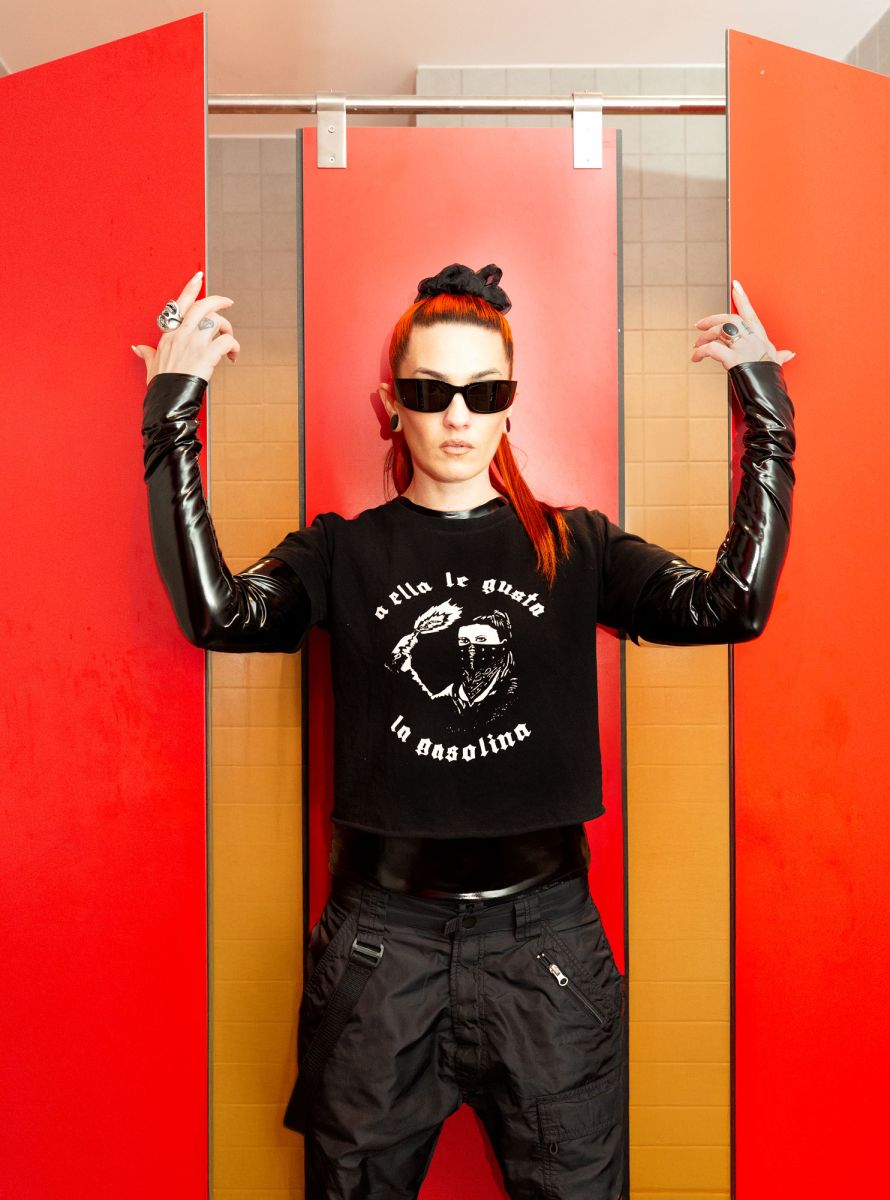
What is this change of attitude related to?
It has to do with a long personal process: many years of therapy and the struggle to be well. Because my starting point was to be very bad. But, I don’t know if it’s natural or not, I have an impulse that leads me to life, very strong. I don't want to be unhappy, and this job brings a lot of catastrophic moments. I think it’s a common issue among those of us who are in music and it refers to extremely vile external logics that go to death, not to life. How do I stand in front of that? Looking around, my life is beautiful: the people I love are fine, I’ve been singing for years, one way or another. How many groups are there, extraordinary, without concerts, that nobody puts a micron in front of them? The thing is, on the outside, they compare us all the time...
With Rosalia.
If you're not Rosalia, you're a loser. Well, no, no. And then also for justice, to get out of the ego, partly because it is also the ego. So a change of attitude, first to be well and enjoy, because this life is over, and second, to take advantage of this speaker and say what I believe. It’s only fair that if you have a speaker, use it well.
"Suddenly I see concerts organized by Petronor; what the hell? A texture created with the sweat of years of work is being damaged."
You’ve dedicated a song to the theme of the music industry: It was there until [Art is killed].
It's spinning in my head. I have sung about other speeches in other times, and I think they are very well represented in other places today. Right now, feminisms need to be in other mouths, not in the mouths of a white, normal-looking person. I'm talking about mine, and right now what's going on in my life that's really pissing me off and affecting other people too? There's the fact that I'm seeing wealthy brats rule music from top to bottom with no soul, no taste, and no ray of justice. And it’s not something new, but I’m seeing how a lot of things that were created and were in the process of being created are being broken, and I’m talking specifically about the Basque Country. All of a sudden I see concerts organized by Petronor, what the hell? It is damaging a texture created with the sweat of many years of work.
Another change that the album brings: songs in Basque.
The first thing I wrote in Basque was parts of the song Ama from my previous album [Post Mortem, 2022]. Motherhood gave me this legitimacy, because then I began to live more in Basque and to raise my life in Basque in a different way. Since I was a child I have a relationship with the Basque language, and it is an abrupt relationship, because I am from Cascante and we know the sociopolitical situation. No one in my family spoke Basque; my grandmother did not know how to say my name in the 1980s. But my parents told me: “You’re a Basque citizen,” and since then I’ve been here, trying to give substance to that statement [laughs].
How did you live that relationship?
For one thing, Basque has been in my life long before my music. I’m afraid of how struggles are used to get a place, because I’ve seen it with feminism all around me. I'm not judging him, but I'm avoiding him. When the neighbors told me to sing songs in Basque, I always answered: “Until I can’t write my own songs, I won’t.” Basque has always been in my life and in such a complex way that I saw it as a treasure and I didn’t know how to do it.
In the case of my mother’s song, when Jare was born – my child – I improvised the chorus of the song and sang it when I changed the packages. One day I thought it would be nice to record the song so that she could keep it forever, and that's when I felt like I did. Well, first of all I thought: ufa, that the first song I do in Basque is also this moñoño thing. But at the same time, I said: and what, it’s true in a nutshell.
.jpg)
And after that, El Cierzo, the first song on Ultra. Apart from being Basque, it is about the Basque identity of La Ribera.
Lately I have been reflecting on what it means to be a Basque citizen of Cascante, because I have noticed that what we who felt like Basque citizens in the Ribera – at least as I have lived it – have done is to bring to the Ribera the cultural issues of the Basque Country centre, because that is what it means to be a Basque citizen, isn’t it? And why are the Basque cultures not jotas or Virgencita del Romero, if Cascante is the Basque Country, after all?
Then, on a day-to-day basis, living in Mondragón, I sometimes felt that I was not a part of it. And, in the park, I’m with a Saharawi woman – the children of both are classmates – and I see how people approach and change language with racialized children. All the children in the park learn Basque, why do you do it in Spanish to the racialized? This makes me angry, but once again, I can’t live struggles or discrimination that I don’t embody, and reflecting on it, I realized where this rage came from: from my own border. I wrote El Cierzo on Cascante. It seems like I'm adding literature to it, but it's completely real. I wrote as I walked towards Tulebras, while the Sciercian was shaking me, and I wrote in Basque. At the end, the song says: “You or me for the people.” And this “we” includes all these others: we move forward. That's what we are. The song has been a quest and a confirmation: here is a new corner, and I will live this one too.
You’re also in production and managerial jobs. You're a member of the Mimosa Bureau.
Kata Garcia and I make up Mimosa. Before Mimosa, there is an important issue: In 2016 I organized a tour to Rebeca Lane [Guatemalan rap singer] in the Basque Country. Within Donostia 2016 I worked on an urban culture project with other agents of the urban culture of the Basque Country. We worked on it for a year, they gave us a budget and we organized a festival. I invited Rebeca Lane, we took her travel card with no return date, and Rebeca spent a month and a half living in my house. I was in charge of everything that belonged to him: organizing concerts, selling merchandise, preparing food. After that, I organized a concert for my friends: Elvirus, Eddi Circa...; all those that I find miraculous. I try to open to them the spaces that I have obtained through concerts or workshops. It comes to me from the inside.
And how did you meet Kata?
We met in college, we both studied social education, and we once met at BIME at a conference. In this context, we both saw clearly that something needed to be done. Mimosa, as a project, is indefinitely difficult to sustain, reinventing itself over and over again. Kata and I are very passionate and we have also had difficulties in the relationship, it is also necessary to talk about it: in precariousness everything is more difficult and we are both mothers and crazy bisexuals and precarious, but on the other hand we get along perfectly. On the other hand, there are difficulties with the people who work with us, this happens in a bar between offices and artists, and there is also little talk about it. These are very complex relationships: total romantic crushes at the beginning and semi-permanent divorces at the end.
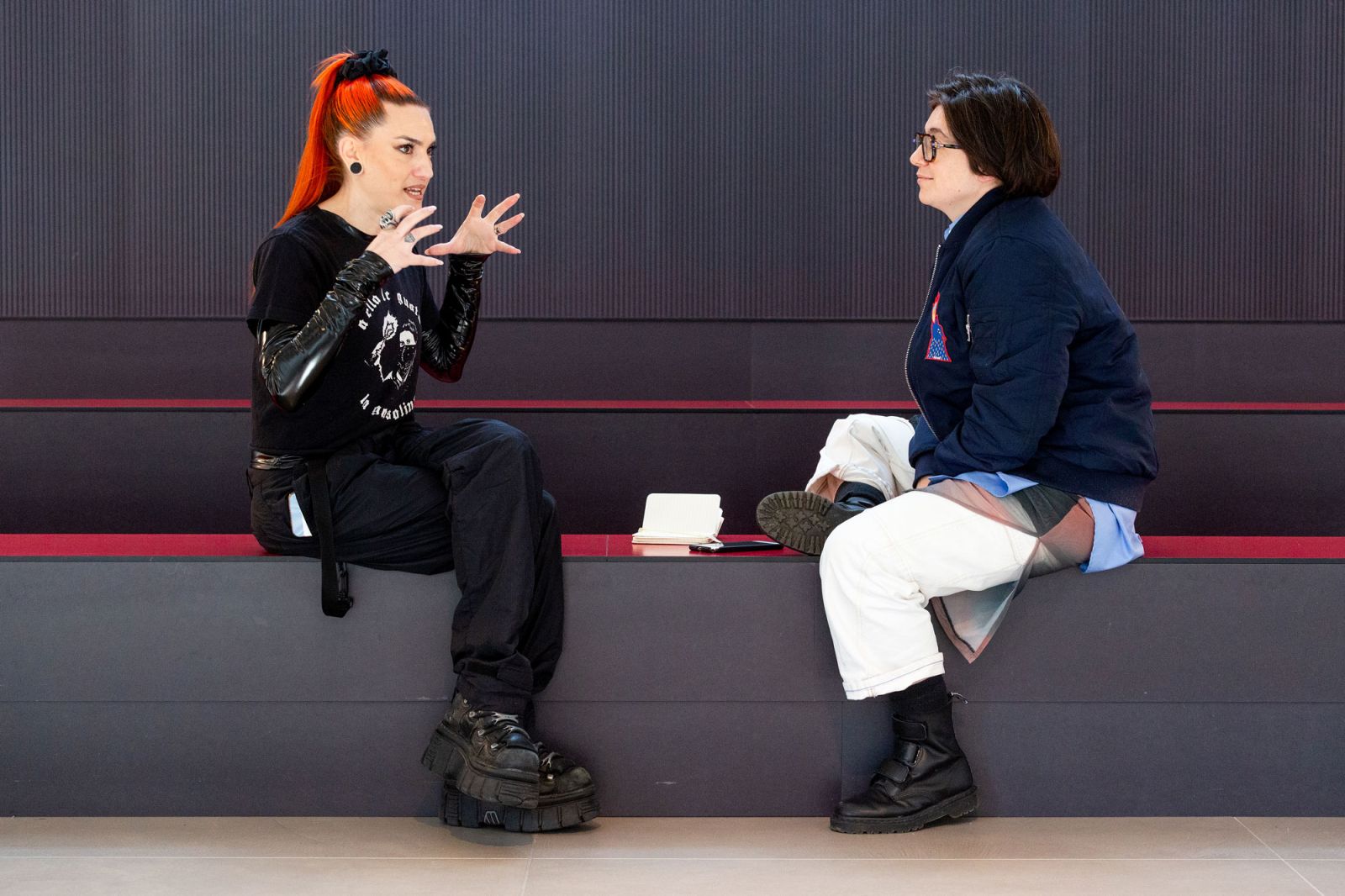
Just like in romantic love.
Absolutely, absolutely, absolutely. So, Kata and I would say, “How are we going to do it differently? How do you make these relationships?” In many offices, projects are supported because they bring money, whether or not they really believe in these artists. For our part, we only work with projects that shake our hearts, although they may not involve a lot of money, or at least not for the moment, or who knows, but we also talk about the margin, which generates disagreements. Disagreements will always arise, but our bet is to talk about things, to put them on the table, to re-analyze them, to reorganize them. Depending on what we’ve learned, being a manager involves taking things away, putting things in, learning; and we don’t get arrogant saying, “We’ll do it another way.” Sometimes you can't.
In my case, I feel very Fury and very Mimosa, they are my most fundamental characteristics. I am the supreme and absolute mime, I need it in my own life, because if I don’t die, then I am also an irresistible bad genius. Fury out, and mimosa in, for us. And we're on it.
Looking to the future, what are your intentions?
As I told you at the beginning, I’m going to keep that attitude that things can end anytime, to be in what I have, instead of focusing on what I don’t have: I think it’s honest with the audience as well. I want to meet people, I want to give and take. As for La Furia, I want to enjoy what’s coming, keep working, and get away from the employment perspective of music as much as possible. That is to say, if a Kuir collective from Santander calls me to sing at a bar on their anniversary, but they don’t have the resources to accompany me with the whole group, I have sought a formula to do everything. To be able to do everything that makes sense to me. I’m not going to cut my wings anywhere because that’s who I am; I want to be as free as I can be.
"To be able to do everything that makes sense to me. I will not cut my wings anywhere, for that is what I am; I want to be as free as I can."
It's not a bad challenge.
No, it's very difficult, but do you know what gives me the bellows? Being inside of me, when you're out of yourself, that's what causes distress. For example, I don’t know what festival I want to play at, so they have to realize that my project is worth it. And that's not up to me, so I let it go. If he comes, great, but it's up to me not to have to give up things I don't want to say no to, just because there's no money, and I have to pay for it from my pocket. I want La Furia to be sustainable, and I have achieved it in a short period of time, because relocation is the key. And, with Mimosa, the same thing: without fear of movement. Let's go, let's go, let's go, let's go, let's go. After all, we come from the mud.
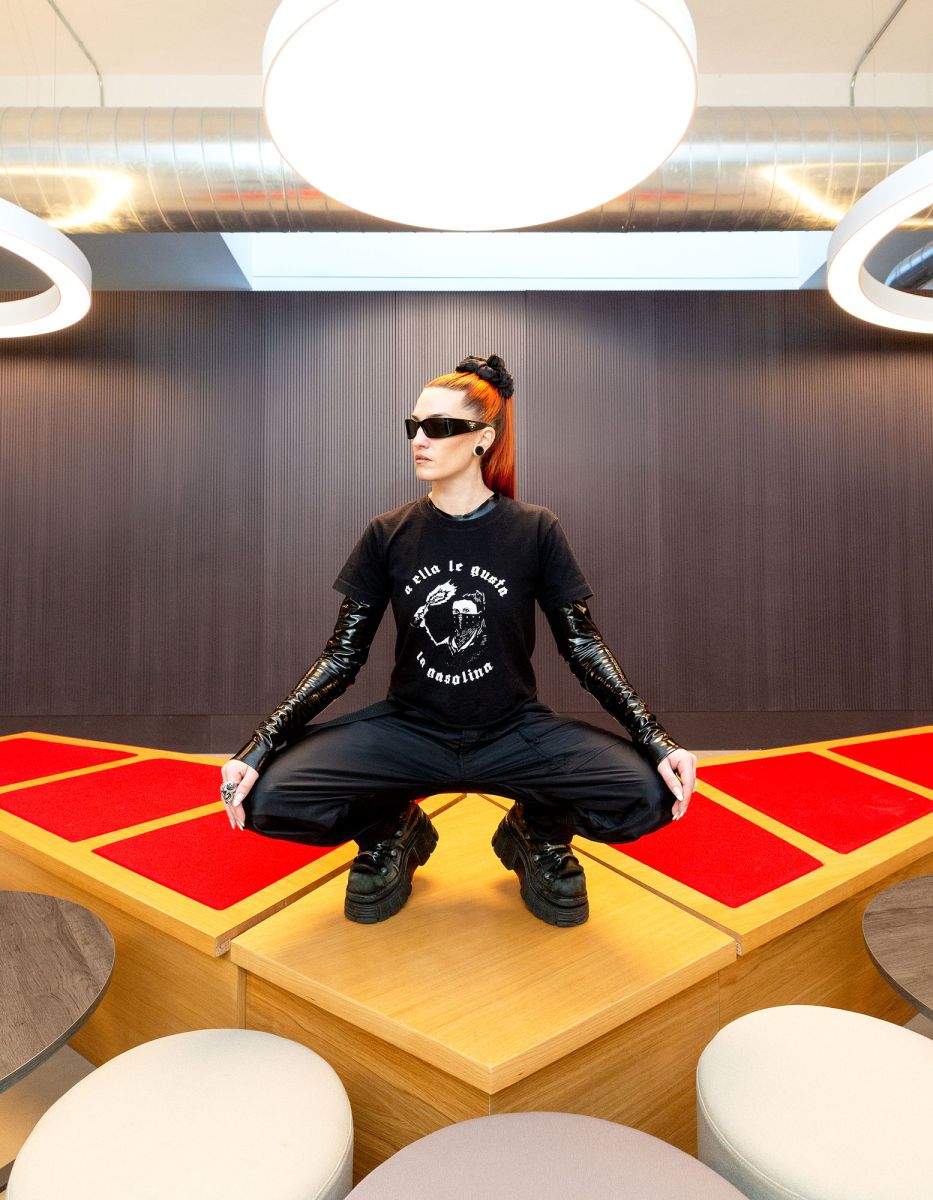
Antifa hardcore
Lee-Kore + Hoben
Autoekoizpena
---------------------------------------------------------
Tamalez ez da ohikoa Arrasaten hardcore kontzertuak egitea, bestelako musika eszenak nagusitzen direlako. Hala bada, joan den larunbatean herriko gazte batzuen... [+]
Hunkituta eta ilusioz egin dut Iruñetik Oronozerako bidea. Maite dut Olaia entzutea, baita hizketan ere. Herriko farmaziaren ondoan autoa utzi eta balkoitik agurtu naute hark eta bere zakur Arak. Grabagailua martxan jarri aurretik, bueltaxka egin dugu frontoira eta Arak... [+]
Bizitza eztia
Verde Prato
Plan B Records, 2024
--------------------------------------------------------------
Ousmane Sembène zinemagile senegaldar ospetsuari galdetu zioten ea bere pelikulak Europan ulertzen ote ziren. Erantzuna, epikoa: “Izan gaitezen... [+]
Inoren Ero Ni + Lisabö
Noiz: martxoaren 14an.
Non: Gasteizko Jimmy Jazz aretoan.
----------------------------------------------------
Izotz-arriskuaren seinalea autoko pantailatxoan. Urkiola, bere mendilerro eta baso. Kontzertuetara bideko ohiko errituala: Inoren... [+]
FITXA
Zer: OLBEk antolatutako Gaetano Donizettiren ‘La favorite’ opera.
Nork: Euskadiko Orkestra Sinfonikoak (zuzendaria: Riccardo Frizza) eta Bilboko Operaren Abesbatzak (zuzendaria: Boris Dujin).
Noiz: otsailaren 18an.
Non: Bilboko Euskalduna Jauregian.
Olor
Noiz: martxoaren 9an.
Non: Bilboko Sarean espazioan.
---------------------------------------------------------
Esperantza. iz. Nahi edo desiratzen dena gertatuko delako edo lortuko delako uste ona.
Izen horixe jarri zion Jokin Azpiazu Carballo Olor ermuarrak bere... [+]
22 talde gehiago iragarri dituzte Lakuntzan uztailean izanen den HatortxuRockerako: Bad Sound, Dupla, Su Ta Gar, Chuleria Joder!, Brigade Loco, Leihotikan, Burutik, Tribade, Maskak, Les Testarudes, Non Servium, Añube, Dj Plan B, Gatibu, DJ Trapella, La Jodedera, Süne,... [+]
Bidea da helmuga
Kokein
Balaunka, 2024
--------------------------------------------------
Eibarko rock talde beterano hau familia oso desberdinetako lagunek osatu zuten aspaldi eta ia fisurarik gabe hamarkadatan eutsi dio. Izan ditu atsedenak, gorputzak hala eskatu... [+]
Elgarrekin izena du Duplak egin duen aurtengo abestiak eta Senpereko lakuan grabatu zuten bideoklipa. Dantzari, guraso zein umeen artean azaldu ziren Pantxoa eta Peio ere. Bideoklipa laugarrengo saiakeran egin zen.
Duela 150 urte, 1875eko martxoaren 7an jaio zen Maurice Ravel musikagile eta konpositorea, Ziburun. Mundu mailan ospetsu dira haren lanak, bereziki Boleroa. Sarri aipatzen da Parisen bizi izan zela, kontserbatorioan ikasi zuela aro berri bateko irakasleekin, munduko txoko... [+]
Zuloa
Merina gris
Sonido Muchacho, 2025
-------------------------------------------------------
Euskal Herrian ez da orain arte horrelako musika elektronikorik egin. Esango nuke Merina Grisek historian euskaraz egin den elektronika eta hyperpop diskorik landuena egin... [+]









